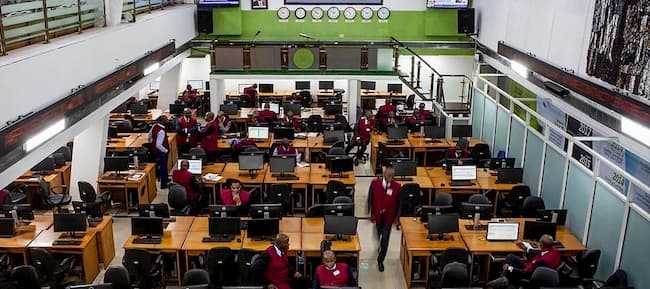On Tuesday, as the Central Bank of Nigeria (CBN) disclosed that it would again retain its 11.5% leading rates, the Nigerian Exchange Limited (NGX) gained N6 billion.
As reported on BizWatch Nigeria, the Monetary Policy Committee (MPC) of the apex bank retained its Monetary Policy Rate (MPR) at 11.5%.
Disclosing this to journalists during a media parley, CBN governor Godwin Emefiele stated: “After a careful balancing of the benefits and the downside risks of the policy options, the MPC decided to hold all parameters constant, believing that a whole stance will enable the continuous permeation of current policy measures in supporting the recorded growth recovery and further boost production and productivity which will ultimately rein in inflation in the short to medium term.
“The MPC thus decided by a unanimous vote, the MPC voted as follows, one, retain MPR at 11.5%; retain the asymmetric corridor of +100/-700 basis points around the MPR; retain the CRR at 27.5%, and retain the Liquidity Ratio at 30%.”
However, at the end of trading on the same day that the MPC made the unanimous voting to maintain the status quo on the lending rate, the NGX All-Share Index (ASI) increased by 0.02% to close at 45,939.51 basis points from 45,928.27 basis points.
In a similar development, the overall market capitalisation size gained N6 billion to close at N24.755 trillion from N24.749 trillion the market opened for trading.
The upturn was impacted by gains recorded in large and medium capitalised stocks, amongst which are -SEPLAT Energy, Ecobank Transnational Incorporated (ETI), Champion Breweries, Nigerian Exchange (NGX), and Red Star Express.
Analysts’ sentiment on the lending rate
Analysts at InvestmentOne Research commended the CBN’s MPC for maintaining the lending rate, as they described it as a smart decision.
A statement from them, read: “In our view, we posit that the committee’s decision to leave all key parameters unchanged is reasonable as hiking rates would impede the recovery we have seen in the economy while loosening rates might worsen inflationary pressures and exacerbate capital flows.
“Nonetheless, we posit that we might see an increase in benchmark interest rate when developed economies raise rates. Furthermore, potential inflationary pressures during the second half of the year may set the stage for a rise in interest rate.”













